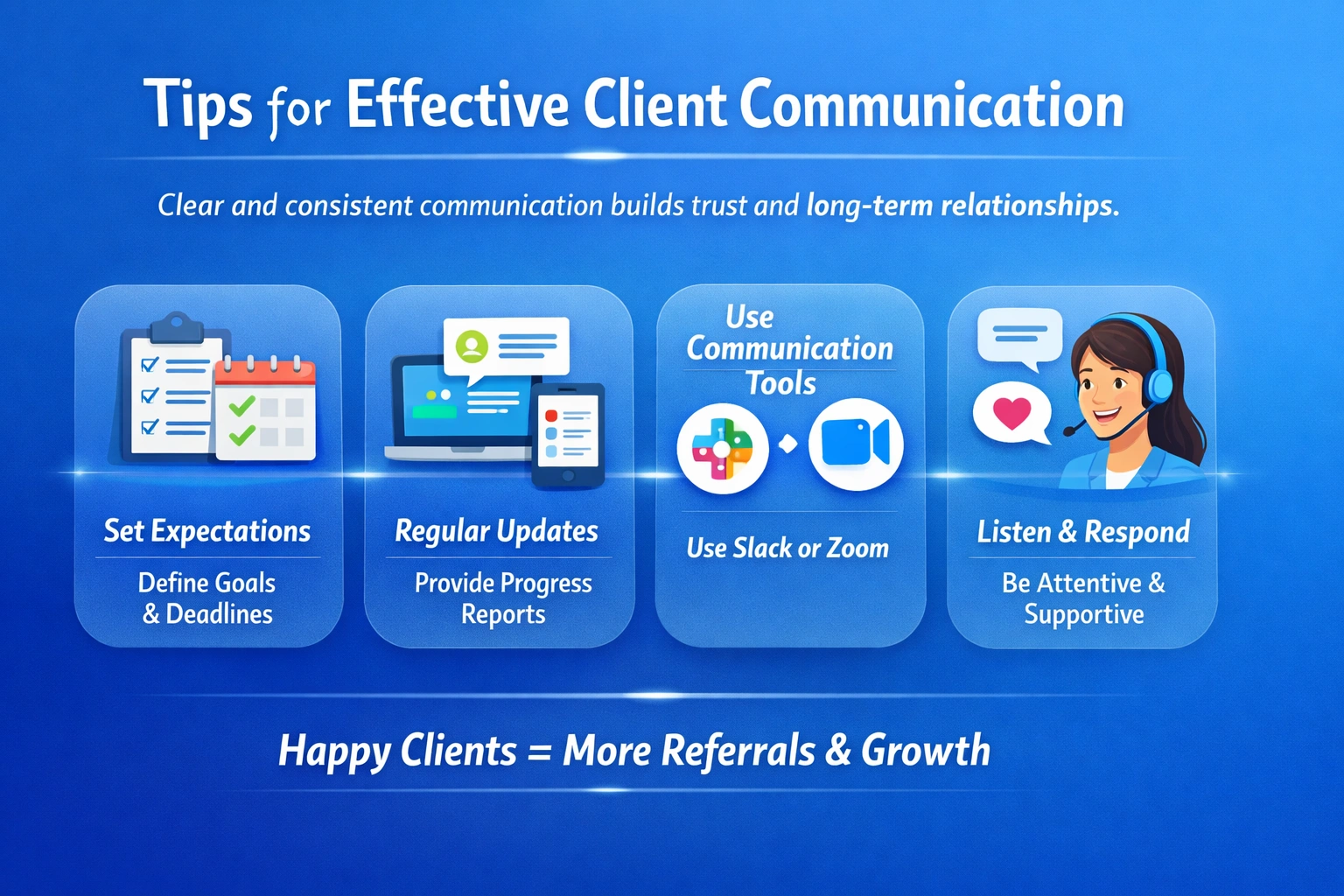Wondering how to be a virtual assistant? This blog covers what a virtual assistant does, how to find jobs, manage clients, and balance work. It also explores Convin’s AI-powered assistant that automates calls in call centers. If you’re aiming to build a sustainable virtual assistant career, this guide lays the foundation. Ready to explore the world of virtual assistance and carve your own path forward?
Start your virtual assistant journey today.
What Is a Virtual Assistant?
Imagine having someone manage your workload, schedule, and tasks from a remote location without missing a beat—this is what virtual assistants offer busy professionals and businesses. A virtual assistant (VA) is a remote worker who provides professional support services, ranging from administrative assistance to technical or creative help. VAs allow businesses to streamline their operations by taking on tasks that would otherwise take up valuable time.
1. Understanding the Role of a Virtual Assistant
The role of a virtual assistant varies greatly depending on the client’s needs, but in general, VAs assist with day-to-day tasks that improve productivity. This can include anything from managing emails and scheduling meetings to preparing documents and handling customer service requests. Additionally, virtual assistants often specialize in social media management or website maintenance, making them valuable to various industries. Virtual assistants are becoming more common as businesses seek ways to reduce overhead costs while still getting professional-level support.
2. Types of Services Virtual Assistants Offer
Virtual assistants provide various services, which typically fall into three main categories: administrative, technical, and creative. Let’s break down what these entail:
- Administrative Services: These include traditional tasks like email and calendar management, meeting organization, data entry, and booking travel arrangements.
- Technical Services: Some VAs offer IT support, manage websites, handle CRM systems, and even assist with cybersecurity.
- Creative Services: VAs with a creative background may handle content creation, graphic design, social media strategy, and SEO work.
The flexibility of virtual assistant services allows them to work with businesses of all sizes across various industries, making the role of a virtual assistant both diverse and dynamic.
3. Key Qualities of a Successful Virtual Assistant
While being skilled is essential, the key qualities that set successful VAs apart include strong communication, time management, and adaptability. These professionals must stay organized and consistently deliver work that meets clients expectations. For example:
- Communication: Clear and timely communication is critical in a virtual setting, where VAs work remotely and must stay aligned with clients.
- Time Management: VAs often juggle multiple clients, so prioritizing and meeting deadlines is crucial.
- Adaptability: As the VA landscape evolves, it is important to learn new tools and quickly adapt to different client workflows.
These qualities help VAs build trust with their clients and ensure long-term success. Besides, possessing these skills allows you to become a virtual assistant who meets and exceeds client expectations. With the right mix of skills and consistency, becoming a virtual assistant can be one of the most practical ways to make money online, offering flexibility, steady income, and growth potential in the remote job market.
4. How to Become Virtual Assistant: Step-by-Step Guide
Becoming a virtual assistant is not just about knowing how to manage tasks—it’s about establishing a sustainable business that caters to clients’ needs. Here are the necessary steps to get started.
STEP 1: Assess Your Skills and Expertise
First, assess the skills that would be valuable to potential clients. Some VAs specialize in administrative work, while others are experts in technical services like website management or creative tasks such as social media marketing. Reflect on your strengths and experience, and ask yourself what unique value you can offer.
Moreover, you can upskill through platforms like Coursera, Udemy, and LinkedIn Learning. These websites offer courses that can help you develop specialized expertise in areas like content creation, bookkeeping, or even virtual project management.
STEP 2: Choose Your Niche to Stand Out
Choosing a niche is important to stand out in a crowded marketplace. This could be based on industry, such as real estate or e-commerce, or specific services, like email marketing or customer service. Defining a clear niche will help you attract the right clients and build a strong reputation for delivering expert-level service in that area.
Equally important, choosing a niche allows you to streamline your services and become an authority in that specific field. For instance, virtual assistants specializing in social media management have seen a significant rise in demand as businesses increasingly rely on digital marketing strategies.
STEP 3: Set Up Your Virtual Assistant Business
Once you’ve determined your niche and assessed your skills, it’s time to set up your virtual assistant business officially. This includes:
- Name and Branding: Choose a business name that reflects your services and build a professional brand that resonates with your target audience. Consider researching AI business names to incorporate innovative and cutting-edge elements into your brand.
- Tools and Software: Invest in project management tools like Trello or Asana to stay organized, and use platforms like Zoom or Slack for seamless communication with clients.
- Legalities and Contracts: Clear contracts that outline the scope of work, payment terms, and confidentiality agreements are vital. These contracts protect you and set clear expectations for your clients, reducing potential misunderstandings.
As you set up your business, consider how you’ll present yourself to clients online. The next crucial step is to build a professional online presence that will help you attract new clients.
5. Building Your Online Presence as a Virtual Assistant
The digital world is vast, and creating a solid online presence is crucial for landing clients as a virtual assistant. Your website and social media profiles serve as the primary way potential clients learn about you and your services.
A. Creating a Website and Portfolio
A well-designed website is an excellent way to showcase your skills and give potential clients an overview of what you offer. Your website should clearly list your services, include testimonials from past clients, and provide work samples. For those just starting out, use work from past jobs or personal projects to build your portfolio. In addition, having a website can make you look more professional and allow clients to learn about your services at their own pace.
B. Leveraging Social Media and Freelance Platforms
Social media is another powerful tool for marketing your services as a VA. Platforms like LinkedIn allow you to network with professionals and share content that positions you as an expert in your field. Instagram can be useful for showcasing your creative services, while Upwork, Fiverr, and Freelancer are ideal platforms to find work and build a client base.
By consistently posting valuable content and actively engaging with your audience, you can increase your visibility and establish yourself as an expert VA. Moreover, using multiple platforms expands your reach, helping you connect with clients in different industries.
Now that you have built your online presence let’s look at how you can secure virtual assistant jobs and grow your business.
Land your first virtual assistant client.
How to Find Virtual Assistant Jobs
Finding virtual assistant jobs requires a proactive approach. In addition to setting up a strong online presence, you need to continuously market your services and network with potential clients.
1. Cold Pitching and Networking Strategies
Cold pitching—reaching out directly to potential clients—is an effective way to find new work. Crafting personalized emails or LinkedIn messages can help you connect with businesses needing your services. Moreover, attending virtual networking events or joining online communities for VAs can lead to client referrals.
Networking plays an equally important role. Engaging in industry-specific forums, such as Virtual Assistant Hub, can help you build relationships with professionals who may need your services or offer referrals.
2. Using Job Boards to Secure VA Roles
Job boards are also a fantastic resource for finding virtual assistant work. Websites like Indeed, FlexJobs, and We Work Remotely frequently post job listings specifically for virtual assistants. To increase your visibility, make sure your profile on these sites is optimized for relevant keywords, such as “virtual personal assistant” or “how to become a virtual assistant."
By applying a combination of cold pitching and using job boards, you can position yourself to find virtual assistant jobs consistently. Let’s move forward and explore how to manage clients and workloads effectively.
Stay productive as a virtual assistant.
This blog is just the start.
Unlock the power of Convin’s AI with a live demo.

Managing Clients and Workload Effectively
Juggling multiple clients and projects is part of a virtual assistant’s daily routine. VAs must use efficient tools and strategies to manage their workload and communicate with clients to ensure smooth operation.
1. Task Management Tools for Virtual Assistants
One of the easiest ways to stay on top of tasks is by using project management tools like Trello or Asana. These platforms allow you to organize projects, track deadlines, and manage client requests in one place. Additionally, using time-tracking software such as Toggl or Harvest helps monitor how much time is spent on specific tasks, ensuring accurate billing.
By staying organized with the right tools, you can handle your workload effectively, allowing you to scale your business as you take on more clients.

2. Tips for Effective Client Communication
Effective communication is essential for maintaining long-term client relationships. Setting clear expectations regarding communication frequency, deadlines, and progress updates can help avoid misunderstandings. Consider using platforms like Slack or Zoom for regular check-ins to ensure everyone is on the same page.
Furthermore, strong client communication builds trust, and happy clients are more likely to refer you to others, helping grow your business. Lastly, let’s discuss the benefits of using Convin’s AI Voicebot for businesses that manage large volumes of customer interactions.
Automate calls with Convin’s VA tool.
Convin’s Automated AI Virtual Assistant: Automating Phone Calls for Call Centers
Managing customer inquiries can be overwhelming for businesses that deal with high volumes of calls, such as call centers. Convin’s AI Voicebot offers a solution by automating these interactions, providing personalized, scalable customer service.
1. How Convin’s AI Voicebot Supports Call Centers
Convin’s AI Voicebot automates both inbound and outbound calls, ensuring customer queries are handled efficiently. This reduces the workload on human agents, allowing them to focus on more complex tasks. Besides, the AI voicebot can handle thousands of calls simultaneously, improving response times and customer satisfaction.
2. Benefits of Using an AI Virtual Assistant for Customer Interactions
With Convin’s AI Virtual Assistant, call centers can provide a personalized experience for customers while reducing costs. The bot uses natural language processing (NLP) to understand customer needs and respond accordingly. Furthermore, it supports multiple languages, allowing businesses to serve a diverse customer base. This automation helps increase efficiency and customer satisfaction while cutting operational costs.
For instance, according to Gartner, 60% of customer service calls will be automated by AI by 2024, demonstrating the growing adoption of virtual assistants in customer service.
Book your Convin phone call demo now!
Building a Successful Virtual Assistant Career
Becoming a virtual assistant allows you to work from anywhere while helping businesses succeed. You can create a successful VA career that meets your professional goals by developing the right skills, building an online presence, and using tools like Convin’s AI Voicebot to assist in high-volume tasks.
Whether you’re just starting out or looking to scale, virtual assistants are in high demand. With the right approach, the growth opportunities are endless. Are you ready to begin your journey as a virtual assistant?
FAQs
1. What are the duties of a virtual assistant?
A virtual assistant handles tasks such as managing emails, scheduling appointments, data entry, customer service, social media management, and bookkeeping. Their duties vary depending on the client’s needs, helping businesses improve efficiency.
2. What is the speciality of a virtual assistant?
Virtual assistants specialize in providing remote administrative, technical, or creative support. Many specialize in social media management, customer support, or project coordination, making them adaptable across industries.
3. Can I be a virtual assistant without experience?
Yes, you can become a virtual assistant without experience by focusing on transferable skills like communication, organization, or tech proficiency. Starting with basic tasks and using platforms like Upwork or Fiverr helps beginners gain experience.
4. Is virtual assistant a good job?
Yes, being a virtual assistant is a good job. It offers flexibility, remote work opportunities, and a growing demand for diverse skills. It's an ideal choice for those seeking work-life balance and the chance to work with multiple clients.








.avif)